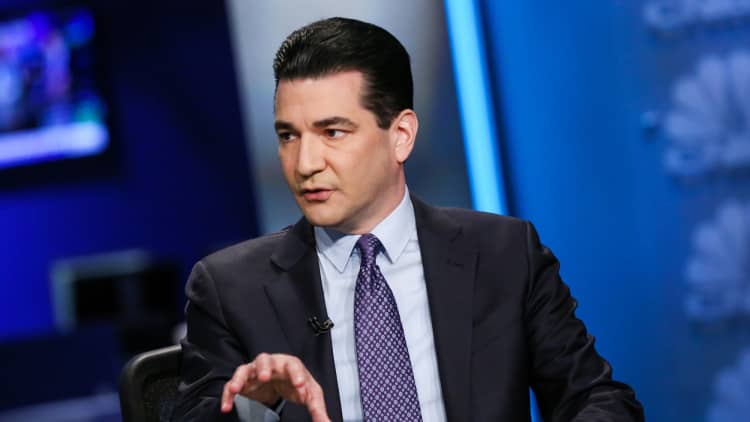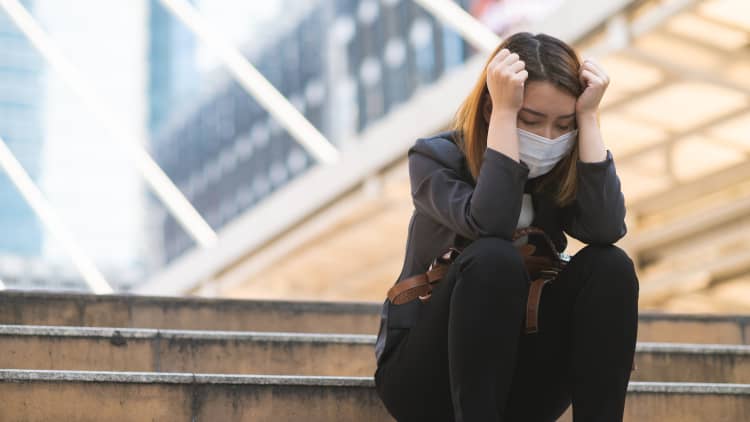At least 34 people connected to the White House have now tested positive for coronavirus, including President Donald Trump, first lady Melania Trump and advisers Hope Hicks, Chris Christie, Kellyanne Conway and Stephen Miller. At least two members of the White House housekeeping staff have also tested positive and secret service members have raised concerns about their own safety.
While the White House has said that "all contact tracing" is complete, a report from The New York Times suggests this is not accurate and thorough contact tracing is not being done. The CDC recommends that any individual within 6 feet of an infected person for at least 15 minutes should participate in contact tracing. The Trump administration's decision not to contact trace, or notify workers if they have potentially been infected, has surprised scientists and prompted discussion about the responsibility employers have to keep their workers safe.
"They're not doing contact tracing. It's surprising they're not," Dr. Scott Gottlieb, former commissioner of the Food and Drug Administration, told CNBC's Andrew Ross Sorkin on Wednesday. "It's also surprising that they're not trying to get to the bottom of who brought this virus into the White House. I do think that they have an obligation to try to figure that out."
The While House may be one of the most visible workplaces in the world, but experts say employers should not be following their example in this instance.

Dr. Howard Forman, director of Yale University's MD/MBA program, argues that all employers have a responsibility to use contact tracing to protect employees.
"There's a political angle to this, which is that they don't want people to know if they're doing contact tracing because it only leads to more questions. And the answers to those questions may be very uncomfortable for them," says Forman, of the Trump administration's actions.
"There are privacy considerations, but the most important consideration is the health of your employees," he says. "Contact tracing is one of the things that we can do to protect people."
Since being hospitalized for Covid-19 on October 2, and being given numerous medical treatments, Trump has also repeated untrue statements comparing the coronavirus to the flu and tweeted "Don't be afraid of Covid."
"If I had a CEO client of mine say that, I would probably advise against it," says John Ho, labor and employment attorney and chair of Cozen O'Connor's Occupational Safety and Health Administration practice.
While regulations vary by location, under federal OSHA regulation, employers have a responsibility to provide a work environment "free from recognized hazards," explains Ho. And part of that responsibility typically includes notifying someone if they have potentially been infected or exposed to a contagious virus at work.
Ho divides the steps organizations should take to keep their workforces safe and comply with OSHA regulation into three categories:
- Keep Covid out by using temperature checks and monitoring workers' health
- Minimize risk by requiring masks, social distancing and proper hygiene
- Respond to exposure by implementing contact tracing and shutting down operations if need be
Forman adds that it's also important that workplaces create an environment in which sick workers do not come into work.
"One of the most important things that employers can do is make sure that their employees can feel safe and not financially encumbered by reporting themselves," he explains. "You don't want to get to a point where an employee is afraid of telling you that they're sick for fear of losing sick days, or for fear of being fired, or for fear of losing money."
And while Trump has reportedly not fully isolated himself, Forman says it is one of the most basic precautions that can be taken.
"Once somebody either has symptoms or has tested positive, the absolute least that they can do is isolate," he says.
Don't miss:



